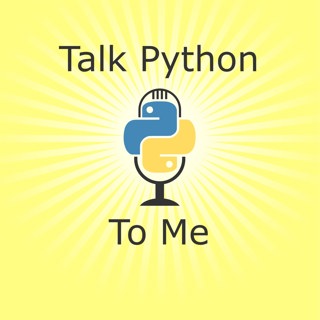
#319: Typosquatting and Supply Chains Vulnerabilities
One of the true superpowers of Python is the libraries over at the Python Package Index. They are all just a "pip install" away. Yet, like all code that you run on your system, it is done with some degree of trust. How do we know that all of those useful packages are trustworthy? That's the topic of this episode. Bentz Tozer and John Speed Meyers are here to share their research into typosquatting on PyPI and other sneaky deeds. But we also discuss some potential solutions and fixes.
6 Kesä 202159min

#318: Measuring your ML impact with CodeCarbon
Machine learning has made huge advancements in the past couple of years. We now have ML models helping doctors catch disease early. Google is using ML to suggest traffic routes in their maps app that will lesson the amount of gasoline used in the trip. And many more examples. But there is a heavy cost for training machine learning models.
28 Touko 20211h 7min

#317: Python at the US Federal Election Commission
When you think of government software development and projects, do you fast apps and modern tech stacks jump to mind? Probably not. So you'll be delighted to hear from our guest, Laura Beaufort. She's the Tech Lead at the US Federal Election Commission.
21 Touko 202152min

#316: Flask 2.0
Flask is one of the most popular Python web frameworks. And they have huge news to share with us. Flask 2.0 just released after a ton of work. And it's as big of a deal as the version number suggests. Async changes are coming, Python 3.5 and below (including Python 2) support has been dropped and much much more. Join me as I discuss Flask 2.0 with David Lord and Philip Jones.
14 Touko 202157min

#315: Awesome FastAPI extensions and add ons
Have you heard that FastAPI is awesome? We have Michael Herman back on the show to help us make it even more awesome with his FastAPI awesome list. He's categorized many extensions and other libraries working with FastAPI to help you be even more efficient with this framework.
7 Touko 20211h 7min

#314: Ask us about modern Python projects and tools
Here's an episode that I did not see coming! Sebastian Witowski and I put together a live stream ask me anything (AMA) as a follow up to some of the ideas around his recent course, Modern Python Projects. We dove deep in comparisons of Poetry vs. pip vs pyenv and answered questions like do you need to use Docker? When should you? and so on.
30 Huhti 20211h 4min

#313: Automate your data exchange with Pydantic
Data validation and conversion is one of the truly tricky part of getting external data into your app. This might come from a REST API, a file on disk, or somewhere else. This includes checking for required fields, correct data types, converting from compatible types (for example, strings to numbers), and much more. Pydantic is one of the best ways to do this in modern Python using dataclass-like constructs and type annotations to make it all seamless and automatic.
22 Huhti 20211h

#312: Python Apps that Scale to Billions of Users
How do you build Python applications that can handling literally billions of requests. I has certainly been done to great success with places like YouTube (handling 1M requests / sec) and Instagram as well as internal pricing APIs at places like PayPal and other banks.
18 Huhti 20211h 17min

